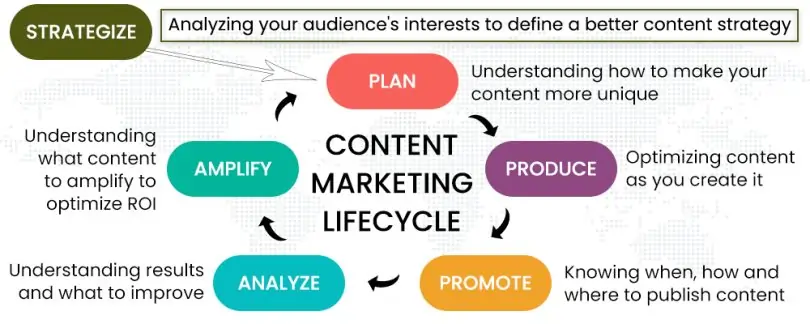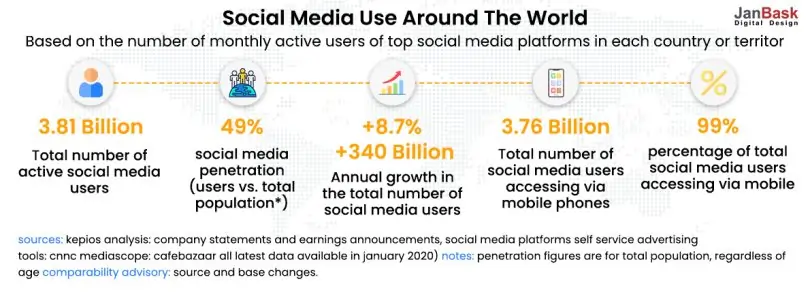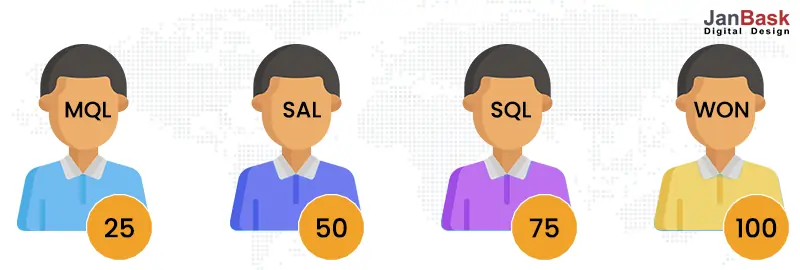

Your marketing plan is crucial to your financial future. Obviously, not every marketing strategy will reach gold, and there are ways for businesses to grow faster. However, the same standards must also be applied to the standards for marketing in enterprises. The best enterprise business requires a marketing plan. Fortunately, the marketing scale up is not difficult or complicated.
Enterprise marketing employs several strategies that aim to expand and grow. This effort is designed primarily to retain a client base and aims to increase exponential growth. An enterprise brand strategy uses a combination of integrated multichannel strategies that target the outside market, targeting a specific market segment within the business. In order to maximize enterprise campaign success, companies usually employ employees beyond marketing departments ranging from product engineers to shareholders.
A key difference between enterprise and traditional marketing is the fact the latter is carried out at a greater scale, which means a larger budget than typical marketing campaigns used. Marketing is common within a mid-market firm that has not tried digital advertising. Internet marketing is commonplace in large businesses that have experience working in competitive markets. Therefore, it is assumed the company's marketing effort produces predetermined outcomes within a given timeline.

Despite the best intentions, strategic planning tends to end in tears of sorrow. So, why is the success rate of implementing a strategic plan so low? Is it safe to say that companies aren't doing enough to put their strategic plans into action? Is a lack of focus on strategic priorities a problem in the workplace? Or is there more to the issue?
Strategic plans often fail for one of these reasons, and here's what you can do to avoid them in the future:
It is likely that you have overcomplicated the process if you find yourself planning more than you are able to carry out. Often, the most effective strategy is the simplest one. Unnecessarily complicating the strategy increases the likelihood of failure. Instead, streamline your strategic planning process and create realistic operational plans to help you achieve success and empower your employees.
Sometimes, planning for the future is more exciting than dealing with today's problems. Encourage your employees to document any issues they encounter as they go about their workdays. The current system's bottlenecks and obstacles need to be examined in detail to determine what needs to be done to improve productivity and efficiency. Monitor the progress of all your projects and review the progress reports provided by your team on a regular basis.
Having a strategic planning session that is limited to a discussion of how to fund current projects using your current resources isn't a step forward. You're merely updating the budget at this point. Real-time adjustments are necessary if certain processes or programs aren't helping you achieve your strategic objectives. That may necessitate putting some projects on hold or even scrapping them.
Too often, strategic plans are put into motion without the full support of all those involved in their implementation. In order to successfully implement a strategy, you must first ensure that all stakeholders are on the same page and ready and willing to make the necessary changes. Everyone, regardless of rank, must be held accountable for their actions, regardless of how junior or senior they are.
Anyone can use Excel, but that doesn't mean it's a complete reporting and business intelligence platform. As a matter of fact, there are a number of problems with the static spreadsheet approach that include waste of time and resources, inability to standardize lead generation processes, inability to track strategic plan implementation, unnecessary duplication, and lack of CRM and ERP systems.
The audience needs clear objectives. While it is important as an enterprise to have a wide and diverse customer base, your company still requires a driving persona that reflects your business identity. If your customer does something you don't think is important, just talk with everyone, which is unlikely to be successful. It would sound good for your company to target multiple types of customers with digital marketing, but you want to have the ideal client in mind.
Once the target and ideal client is identified, you can then find a simple route for communication. This involves developing and maintaining a consistent identity. You can use it as a guide for everything in your content. For example, all content should have the same tone of voice, with the same style and tone of voice.
The key to developing a successful enterprise marketing strategy is developing the strategy. These objectives define the endpoint that defines success in your organization and quantify the data that demonstrates feasible growth. When building a marketing plan, a big problem is understanding how to accomplish the goals.

Looking for Digital Marketing Services?
While the five pitfalls mentioned above are common pitfalls to overcome by essential enterprise planning, it is important to avoid such things. Although enterprise branding may prove challenging for marketers more familiar with SMB and MLM marketing techniques, it can also be solved by a proactive marketing plan.
Customers trust peer review better when it comes to business communications than when they use marketing emails. Increasing automation in everyday life is a fact of today's consumer life, and some people just desire to be connected in some way. This is why 64 percent of consumers will frequently seek a review from their websites.
Inbound marketing helps you to generate leads to your website by providing a relevant and personalized product. It is designed for your marketing voice and is an interactive experience that will get the reader to click and read the text. Inbound Marketing has been proven effective for enterprises because they bring your clients straight from your business and support a growing model. When you create unique content targeted at the targeted customers, new leads will become interested in you and contact you to discuss further information with your brand.
It's no surprise that HubSpot has incorporated inbound marketing into its website. It'll work on your business too! It has relatively low outbound flows. The company has a huge amount of content available on a website that is SEO optimized and is super useful to target audiences.
Achieving and maintaining a strong brand is one of the most important aspects of any enterprise. You can learn more on how to brand your business here.

A headless content manager is ideal for promoting shopper omnichannel commutation. It can integrate the front-end technologies of the web browser of a website and deliver a highly scalable content experience. Headless CMS gives enterprises an enhanced marketing strategy and the ability to maximize their marketing efforts to their maximum potential. Adding new capabilities can help you increase your site's performance in a fast-growing business by allowing you to manage larger surges of traffic and increased leads and customers.
Word of mouth marketing is still in existence as long as people remember – anyone is interested in a product from one company and will recommend it to their friends. Amongst consumers, 74% say that word of mouth influences the decision to purchase. WOMM is best at finding out your target audience and bringing your message straight into it. This is exactly the opposite of people clicking an advertisement or using Google to find you. A common way to accomplish WOMM is to use social networks.
Increasing your business brand awareness can help increase business conversion rates. Brand awareness is similar to the ability to identify a prospective customer using your niche and your brand voice. While your organization should have an established brand voice, you can test different kinds of content to determine how the existing customers are responding. Engage your target audiences on social networks to build strong connections with customers faster. You can leverage branding and marketing services for the different stages of your business from conception to launching, to scaling.

Lead Scorers can measure a potential client’s potential conversion rate by ranking potential prospects in measurable terms. By using a CRM system to identify the most relevant and reputable lead sources, marketers can identify the most relevant and prestigious segments for their business. In order to develop lead relationships, enterprises could benefit immensely from marketing automation tools that score leads automatically.

It's important to scale. Although it's easy to refocus a specific employee's focus on different departments or projects internally, other aspects of your marketing strategy may be more difficult to manage. The biggest issue enterprise companies have is content targeting. The unfortunate reality is that many marketers attempt to barrel through this struggle headfirst without any assistance; however, there are some exceptions.
The branding process is a dynamic and complex process. It is important to incorporate enterprise brand management and develop an initial strategy for the product, service, or company in order to make it stand out from the competitors.
Vendor management refers to internal operations that permit optimum cost control over your branding services. This solution helps your company manage its vendor processes at an integrated location, where documents are retrieved and monitored. Like a content management software application, enterprise marketers often overlook the advantages of monitoring vendor relationships while scaling their marketing programs.
Probably your clientele is outliving the spreadsheet. CRM is an application that helps organizations control customer interaction. Using a streamlined process, the company helps to increase sales or profits by improving customer relations. A customer database is used for managing customer data such as a phone number, e-mail address, or place of employment. This data is useful for determining how your clients interact.
You need to track closely how your business operates. You need to know what's available to you in the form of production materials, software, and transactional processes. Successful Enterprise Market Management programs usually maintain company data by utilizing Enterprise Resource Planning (ERP) systems. ERP software can help you reduce the time spent finding the right resources in a database and then compile the data into an easy-to-access location.

A good EMS software can provide many important benefits, such as:
Compared to small and medium-sized businesses, enterprise marketing is an entirely different beast. It necessitates communication and cooperation among various departments, as well as a commitment from stakeholders to the strategy's objectives. If your company has been considering implementing enterprise marketing, now is the time to get the ball rolling. While scaling up your marketing efforts will inevitably present difficulties, there are notable ways in which you can successfully make the shift. Branding experts can help you establish a clear, cohesive, and recognizable brand with the right enterprise branding services.
Enterprise companies now have access to massive amounts of data about customers and prospects, which they can use to generate insights that aid in marketing decisions.
Beginning with data-driven customer research, enterprises can confidently set the direction for sales and marketing teams, knowing they know who is buying and who they are speaking to with their messaging.
Looking to Grow Your Brand Online?

O
Great Insights!
J
I totally agree! ERP is very necessary for data analysis
A
I have been using CMS for a long time and it has helped me a lot!
Z
Consistent messaging is totally important for brand building.
E
Thanks for sharing such a deep analysis on enterprise marketing.